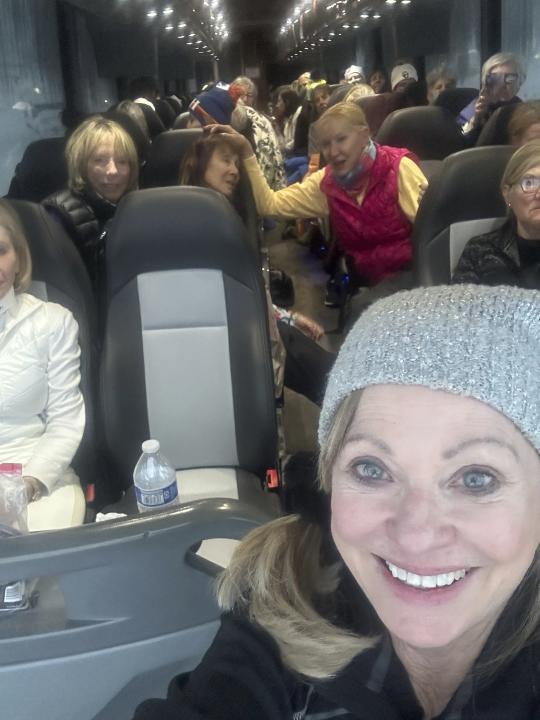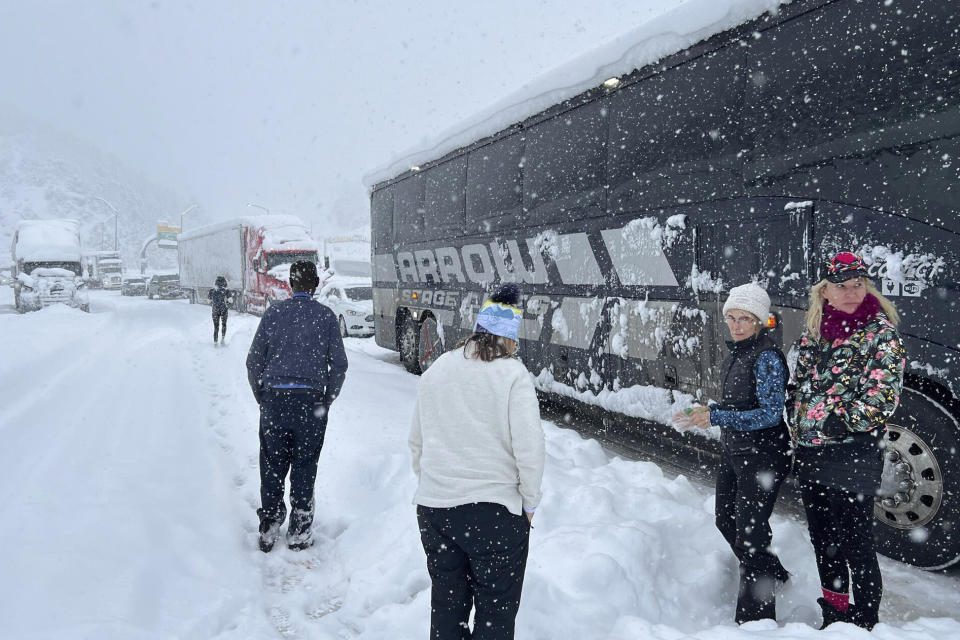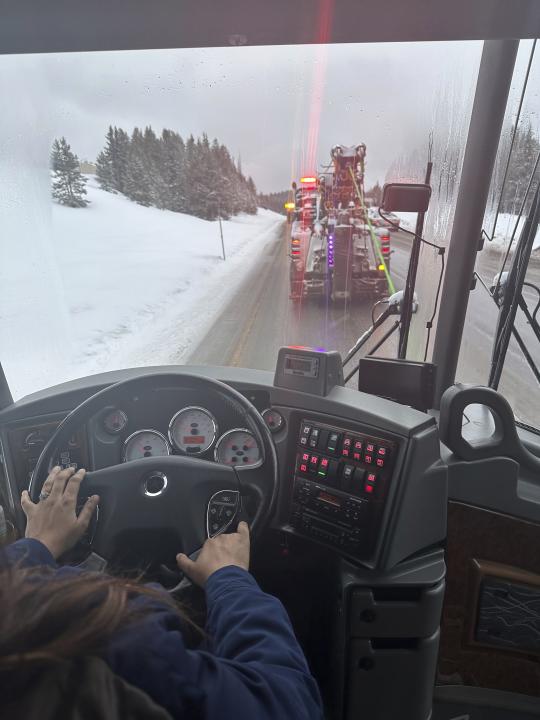Weekly ski trip turns into overnight ordeal when about 50 women get stranded in bus during snowstorm
DENVER (AP) — A weekly ski trip for about 50 women from the Denver area turned into an overnight ordeal when their bus got stuck in a snowstorm behind jackknifed semi tractor-trailers on their way back from Vail.
One of the women, Brenda Djorup, called it a test of perseverance and patience. But she said they got to know one another better, helped a couple of women with medical issues and made it home safely Thursday after 22 hours on the bus.
“It was a testament to women who have dealt with other crises in our lives and knew how to handle a situation that was unexpected and uncomfortable and keeping things in its right perspective,” said Djorup, a retired teacher.
“We did run out of food and water and were limited on our use of the bathroom," she said. “And people dug in their backpacks for tissues when we ran out of toilet paper. And we looked after each other.”
The women were on the final of the 10 weekly ski trips with the Thera-ski Bus, a volunteer-run women's only ski group that has been operating for about 40 years.
The women, including some in their 70s, were chased off the hill at Vail because of a lightning storm on Wednesday afternoon, but that didn't end up being close to the worst part of their trip.
As they were enjoying their after-skiing snacks, including banana bread and cookies, they were stopped due to jack-knifed semis for a few hours. When they started moving again, they had to be towed over a mountain pass because the transmission overheated and then they had to wait for it to cool down. They ended up being stopped again behind other disabled tractor-trailers as night fell.
“We're resigned,” Bette Davis said. “We're now sleeping on the bus. There’s nothing happening. We’re just idling there forever.”
One of the ladies had been injured when another skier ran into her from behind on the way off the hill, and there was concern whether another of the passengers would get home in time for her daily insulin shot.
“We helped each other,” Djorup said. “We got snow to put on the knees of the girl who was injured. We we shared what we had in our backpacks as far as food with the girl who is diabetic.”
They did run out of water at one point, but the bus company was able to take a maintenance truck in to a convenience store that the bus couldn't access and get them water and chips, Davis said.
The women used their cellphones, when they had service, to contact family and try to find out when the road might reopen for them and everyone else stuck on the highway.
Mary Wagner said the group channeled their frustration over a lack of information by sending emails to Gov. Jared Polis’ office and reaching out to the media to bring attention to the fact that the highway, which brings so many visitors and their dollars to ski resorts, was brought to a standstill, Wagner said.
“It gave us a purpose instead of just sitting there and complaining,” said Wagner, who said did not sleep much on the bus and mostly giggled with a friend much of the night. Nevertheless, she was back out skiing on Friday on a previously planned trip.
Wagner said she would like authorities to fine truck drivers without chains more severely and be more efficient about clearing stuck vehicles.
Colorado requires that truck drivers traveling through the mountains on Interstate 70, the state’s main east-west highway, carry chains with them from September through May and be ready to put them on their tires for better traction during storms.
An unknown number were not using chains during this week’s storm and were blamed for blocking traffic after getting stuck. Other vehicles stuck behind them had to wait for specialty tow trucks to come in and haul the big rigs out of the way to allow traffic to flow.
Twelve truck drivers were cited for not using chains during the storm, the Colorado State Patrol said Friday. However, it acknowledged that sometimes trucks will be towed away to get traffic moving before a trooper can arrive to issue a ticket.
Despite being stuck on the highway in the snow, Davis said they didn't get cold because the bus was able to keep running and they had all their ski clothing, including some who had mittens and boots with warmers in them.
Davis, 76, has been a member of the Thera-ski Bus group for about 25 years.
“When I first came on the bus, I was one of the younger members, and I always was in awe of the old ladies that were still skiing,” she said. “Now I'm one of them. We will be able to tell this story for the next 30 years, but we’re hoping to keep this bus going forever.”
___
Hanson reported from Helena, Montana.

 Yahoo News
Yahoo News 


